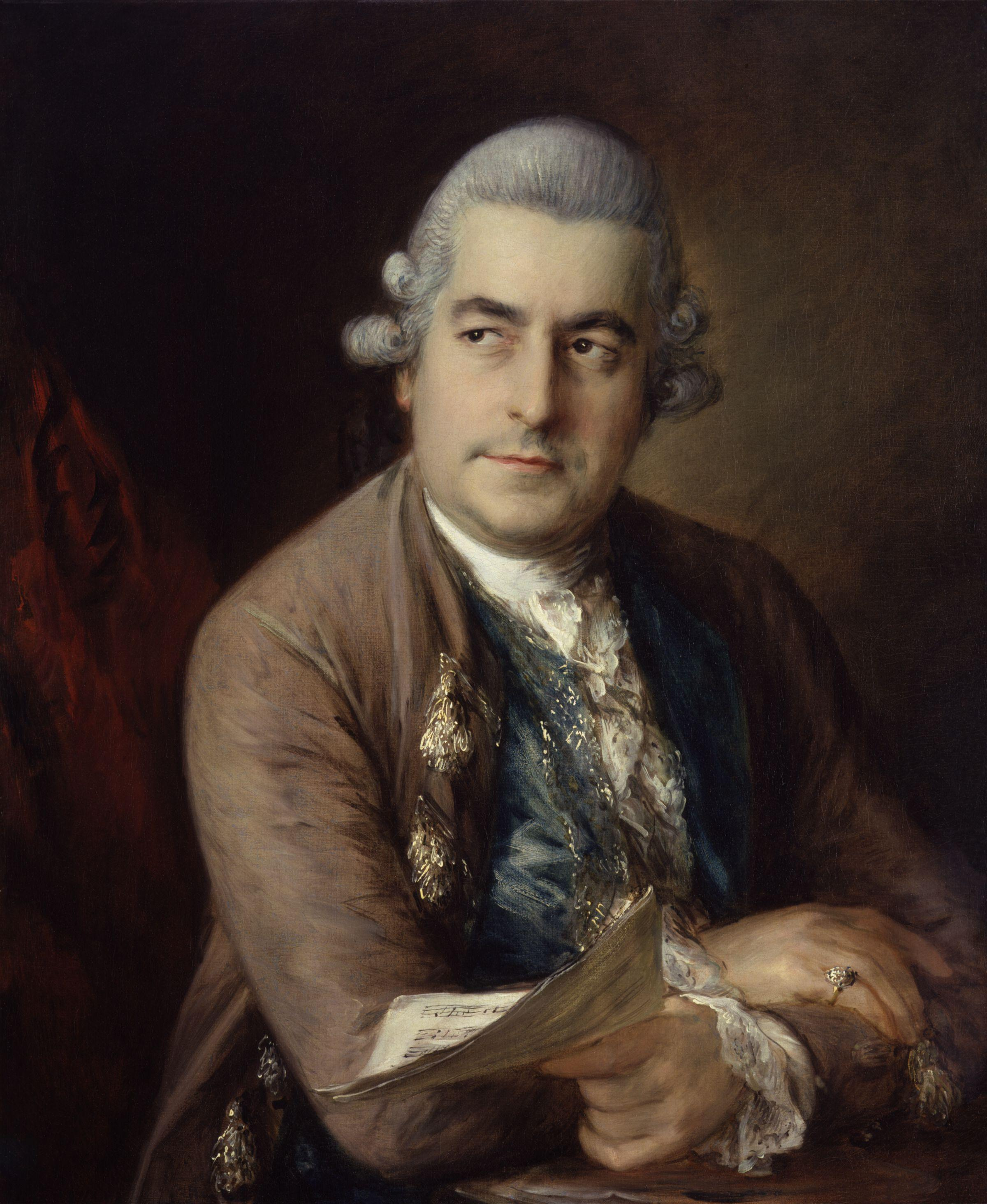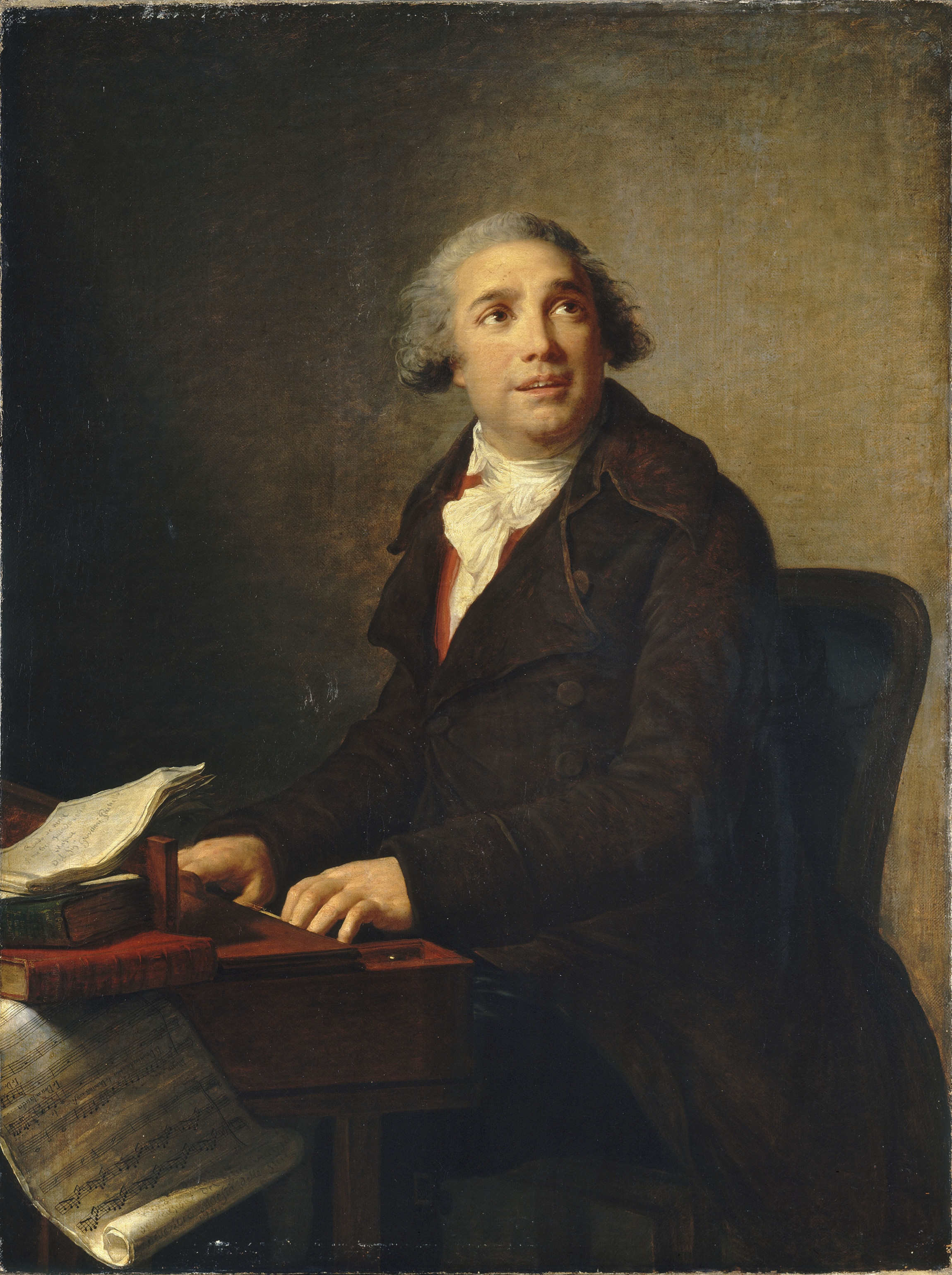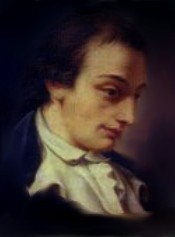|
1768 In Music
This is a list of music related events in 1768. Events * Johann Christian Bach gives the first ever solo piano performance, in London on an instrument by Johannes Zumpe. *Wolfgang Amadeus Mozart and his family are resident in Vienna until December. *Antonio Sacchini returns to Venice to become director of the Conservatorio dell'Ospadeletto. *Giuseppe Tartini suffers a stroke. * Michael Haydn marries Maria Magdalena Lipp, a singer and the daughter of the court organist. Popular music *"The Liberty Song", with words by John Dickinson – considered the first American patriotic song. He used the music to the traditional British song, '' Hearts of Oak''. Opera *Johann Adolf Hasse – '' Piramo e Tisbe'' * Joseph Haydn – ''Lo speziale'' * Niccolò Jommelli **''Fetonte'' **''La schiava liberata'' * Wolfgang Amadeus Mozart **''Bastien und Bastienne'', K. 50/46b (his first published opera) **''La finta semplice'', K.51/46a *Giovanni Paisiello – ''Olimpia'' * Antonio Zingar ... [...More Info...] [...Related Items...] OR: [Wikipedia] [Google] [Baidu] |
Johann Christian Bach
Johann Christian Bach (September 5, 1735 – January 1, 1782) was a German composer of the Classical period (music), Classical era, the eighteenth child of Johann Sebastian Bach, and the youngest of his eleven sons. After living in Italy for several years, Bach moved to London in 1762, where he became known as "the London Bach". He is also sometimes known as "the English Bach", and during his time spent living in the British capital, he came to be known as John Bach. He is noted for playing a role in influencing the concerto styles of Joseph Haydn, Haydn and Wolfgang Amadeus Mozart, Mozart. He contributed significantly to the development of the new sonata principle. Life Johann Christian Bach was born to Johann Sebastian Bach, Johann Sebastian and Anna Magdalena Bach in Leipzig, Germany. His distinguished father was already 50 at the time of his birth—an age gap exemplified by the sharp differences in the musical styles of father and son. Even so, father Bach instructed Joh ... [...More Info...] [...Related Items...] OR: [Wikipedia] [Google] [Baidu] |
Giovanni Paisiello
Giovanni Paisiello (or Paesiello; 9 May 1740 – 5 June 1816) was an Italian composer of the Classical era, and was the most popular opera composer of the late 1700s. His operatic style influenced Mozart and Rossini. Life Paisiello was born in Taranto in the Apulia region and educated by the Jesuits there. He became known for his beautiful singing voice and in 1754 was sent to the Conservatorio di S. Onofrio at Naples, where he studied under Francesco Durante, and eventually became assistant master. For the theatre of the Conservatorio, which he left in 1763, he wrote some intermezzi, one of which attracted so much notice that he was invited to write two operas, ''La Pupilla'' and ''Il Mondo al Rovescio'', for Bologna, and a third, ''Il Marchese di Tidipano'', for Rome. His reputation now firmly established, he settled for some years at Naples, where, despite the popularity of Niccolò Piccinni, Domenico Cimarosa and Pietro Guglielmi, of whose triumphs he was bitterly jealous, h ... [...More Info...] [...Related Items...] OR: [Wikipedia] [Google] [Baidu] |
Francisco Inácio Solano
Francisco is the Spanish and Portuguese form of the masculine given name ''Franciscus''. Nicknames In Spanish, people with the name Francisco are sometimes nicknamed "Paco". San Francisco de Asís was known as ''Pater Comunitatis'' (father of the community) when he founded the Franciscan order, and "Paco" is a short form of ''Pater Comunitatis''. In areas of Spain where Basque is spoken, "Patxi" is the most common nickname; in the Catalan areas, "Cesc" (short for Francesc) is often used. In Spanish Latin America and in the Philippines, people with the name Francisco are frequently called "Pancho". " Kiko" is also used as a nickname, and "Chicho" is another possibility. In Portuguese, people named Francisco are commonly nicknamed " Chico" (''shíco''). This is also a less-common nickname for Francisco in Spanish. People with the given name * Pope Francis is rendered in the Spanish and Portuguese languages as Papa Francisco * Francisco Acebal (1866–1933), Spanish writer and ... [...More Info...] [...Related Items...] OR: [Wikipedia] [Google] [Baidu] |
Jean-Jacques Rousseau
Jean-Jacques Rousseau (, ; 28 June 1712 – 2 July 1778) was a Genevan philosopher, writer, and composer. His political philosophy influenced the progress of the Age of Enlightenment throughout Europe, as well as aspects of the French Revolution and the development of modern political, economic, and educational thought. His ''Discourse on Inequality'' and ''The Social Contract'' are cornerstones in modern political and social thought. Rousseau's sentimental novel ''Julie, or the New Heloise'' (1761) was important to the development of preromanticism and romanticism in fiction. His ''Emile, or On Education'' (1762) is an educational treatise on the place of the individual in society. Rousseau's autobiographical writings—the posthumously published '' Confessions'' (composed in 1769), which initiated the modern autobiography, and the unfinished '' Reveries of the Solitary Walker'' (composed 1776–1778)—exemplified the late 18th-century " Age of Sensibility", and featured an ... [...More Info...] [...Related Items...] OR: [Wikipedia] [Google] [Baidu] |
Mandolin
A mandolin ( it, mandolino ; literally "small mandola") is a stringed musical instrument in the lute family and is generally plucked with a pick. It most commonly has four courses of doubled strings tuned in unison, thus giving a total of 8 strings, although five (10 strings) and six (12 strings) course versions also exist. There are of course different types of strings that can be used, metal strings are the main ones since they are the cheapest and easiest to make. The courses are typically tuned in an interval of perfect fifths, with the same tuning as a violin (G3, D4, A4, E5). Also, like the violin, it is the soprano member of a family that includes the mandola, octave mandolin, mandocello and mandobass. There are many styles of mandolin, but the three most common types are the ''Neapolitan'' or ''round-backed'' mandolin, the ''archtop'' mandolin and the ''flat-backed'' mandolin. The round-backed version has a deep bottom, constructed of strips of wood, glued togethe ... [...More Info...] [...Related Items...] OR: [Wikipedia] [Google] [Baidu] |
Gabriele Leone
Gabriele Leone (born Naples c. 1735 – 1790) was an Italian musician and composer who lived in Paris during the middle and later part of the 18th century. A virtuoso on the violin and mandolin, he wrote an early mandolin method, ''Analytical method for mastering the violin or the mandolin'' in 1768 and composed for both instruments. He was an early teacher of the duo method, an advanced technique which would reappear in the 20th century, taught by Giuseppe Pettine in the United States. In the 1700s, the mandolin spread across Europe for the first time, through performances by masters of the instrument. Leone was one of those early masters who spread the mandolin in Europe, giving concerts and teaching. He spent time in London (1762–1763) as director of the London Opera before returning to Paris where he performed at the Concert Spirituel from 1760 to 1766. One of his students was Louis Philippe II, Duke of Orléans, the father of King Louis Philippe I (the last French king). ... [...More Info...] [...Related Items...] OR: [Wikipedia] [Google] [Baidu] |
Johann Caspar Heck
Johann, typically a male given name, is the German form of ''Iohannes'', which is the Latin form of the Greek name ''Iōánnēs'' (), itself derived from Hebrew name ''Yochanan'' () in turn from its extended form (), meaning "Yahweh is Gracious" or "Yahweh is Merciful". Its English language equivalent is John. It is uncommon as a surname. People People with the name Johann include: Mononym *Johann, Count of Cleves (died 1368), nobleman of the Holy Roman Empire *Johann, Count of Leiningen-Dagsburg-Falkenburg (1662–1698), German nobleman *Johann, Prince of Hohenzollern-Sigmaringen (1578–1638), German nobleman A–K * Johann Adam Hiller (1728–1804), German composer * Johann Adam Reincken (1643–1722), Dutch/German organist * Johann Adam Remele (died 1740), German court painter * Johann Adolf I, Duke of Saxe-Weissenfels (1649–1697) * Johann Adolph Hasse (1699-1783), German Composer * Johann Altfuldisch (1911—1947), German Nazi SS concentration camp officer executed for ... [...More Info...] [...Related Items...] OR: [Wikipedia] [Google] [Baidu] |
William Hayes (composer)
William Hayes (1706 – 27 July 1777) was an English composer, organist, singer and conductor. Life Hayes was born in Gloucester. He trained at Gloucester Cathedral where the cathedral account books record his name amongst the choristers from 1717. He spent the early part of his working life as organist of St Mary's Church, Shrewsbury, St Mary's, Shrewsbury (1729) and Worcester Cathedral (1731). The majority of his career was spent at the University of Oxford where he was appointed organist of Magdalen College, Oxford, Magdalen College in 1734, and established his credentials with the degrees of B.Mus in 1735 and D.Mus in 1749. (He was painted by John Cornish in his doctoral robes around 1749.) In 1741 he was unanimously elected Heather Professor of Music and organist of the University Church of St Mary the Virgin, Oxford, University Church of St Mary the Virgin. He presided over Oxford's concert life for the next 30 years, and was instrumental in the building of the Holywell ... [...More Info...] [...Related Items...] OR: [Wikipedia] [Google] [Baidu] |
Friedrich Schwindl
Friedrich may refer to: Names *Friedrich (surname), people with the surname ''Friedrich'' *Friedrich (given name), people with the given name ''Friedrich'' Other *Friedrich (board game), a board game about Frederick the Great and the Seven Years' War * ''Friedrich'' (novel), a novel about anti-semitism written by Hans Peter Richter *Friedrich Air Conditioning, a company manufacturing air conditioning and purifying products *, a German cargo ship in service 1941-45 See also *Friedrichs (other) *Frederick (other) *Nikolaus Friedreich Nikolaus Friedreich (1 July 1825 in Würzburg – 6 July 1882 in Heidelberg) was a German pathologist and neurologist, and a third generation physician in the Friedreich family. His father was psychiatrist Johann Baptist Friedreich (1796–1862) ... {{disambig ja:フリードリヒ ... [...More Info...] [...Related Items...] OR: [Wikipedia] [Google] [Baidu] |
Symphony No
A symphony is an extended musical composition in Western classical music, most often for orchestra. Although the term has had many meanings from its origins in the ancient Greek era, by the late 18th century the word had taken on the meaning common today: a work usually consisting of multiple distinct sections or movements, often four, with the first movement in sonata form. Symphonies are almost always scored for an orchestra consisting of a string section (violin, viola, cello, and double bass), brass, woodwind, and percussion instruments which altogether number about 30 to 100 musicians. Symphonies are notated in a musical score, which contains all the instrument parts. Orchestral musicians play from parts which contain just the notated music for their own instrument. Some symphonies also contain vocal parts (e.g., Beethoven's Ninth Symphony). Etymology and origins The word ''symphony'' is derived from the Greek word (), meaning "agreement or concord of sound", "concert of ... [...More Info...] [...Related Items...] OR: [Wikipedia] [Google] [Baidu] |
Pietro Alessandro Guglielmi
Pietro Alessandro Guglielmi (9 December 1728 – 19 November 1804) was an Italian opera composer of the classical period. Biography Guglielmi was born into the Guglielmi family of musicians in Massa. His father, Jacopo Guglielmi, was a composer and conductor of the orchestra in the court of the Duke of Massa. Pietro received his first musical education from his father who taught him to play bassoon and the viola; eventually becoming a musician under his father at court while still a boy. Pietro's brother, Abate Domenico, was the maestro di cappella at the Massa Cathedral, and Pietro studied the organ under him. A child prodigy, Guglielmi's talent as a musician earned him the favor of the Duke of Massa who took an interest in supporting his musical development. The Duke initially paid for Guglielmi to have formal musical training with Jacopo Puccini in Massa, and afterwards paid his tuition for his education at the Conservatorio di Santa Maria di Loreto in Naples which he ... [...More Info...] [...Related Items...] OR: [Wikipedia] [Google] [Baidu] |
John Garth (composer)
:''This article refers to the composer; for the politician see John Garth (politician), John Garth.'' John Garth (1721 – 1810) was an England, English composer, born in Harperley, near Witton-le-Wear, County Durham. Life On 23 June 1742 Garth became a freemason at the lodge meeting at the Bird and Bush in Saddler Street, Durham.See 'Harmony and brotherly love: musicians and Freemasonry in 18th-century Durham City' by Simon Fleming in ''The Musical Times'', 2008 (Autumn), 69-80 Little else is known of his early life, but in September 1745 and August 1746 he promoted concerts in Stockton-on-Tees, Stockton. In the latter year he was living in Durham city, where he organised a concert series until 1772, selling tickets from his house, first in Sadler Street, thereafter in North Bailey, where he lived until after 1791. It appears that the Durham concerts were in alternate weeks to those organized by his friend Charles Avison in Newcastle, where Garth played the cello. Garth's fa ... [...More Info...] [...Related Items...] OR: [Wikipedia] [Google] [Baidu] |



